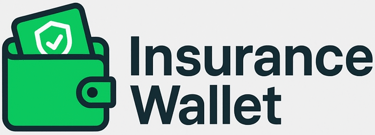🚗Motor Vehicles Act & Insurance Requirements:
What Every Insurance Professional Must Know
The Motor Vehicles Act forms the backbone of road safety, transport regulation, and insurance obligations in India. For insurance professionals and sales managers, understanding its provisions is critical — not only to ensure compliance but also to communicate effectively with customers about why insurance is non-negotiable.
📜 A Quick Look at the Evolution
1939 Act – First structured law covering road transport, registration, traffic control, and mandatory third-party insurance (from 1946).
1988 Act (effective 1989) – Comprehensive update to match modern transport technology, stricter licensing, anti-pollution standards, and compulsory third-party liability cover.
1994 Amendment – Eco-friendly vehicle provisions, higher compensation for hit-and-run victims, stricter punishments for violations.
Later Amendments (2019 etc.) – Stronger penalties, enhanced compensation slabs, and digitization of documents.
🚗 Insurance Requirements under the Act
1. Compulsory Third-Party Insurance (Section 146 & 147)
No motor vehicle can be used in a public place without insurance against third-party risks. The policy must cover:
Death or injury to any person, including passengers in public service vehicles.
Damage to third-party property (with limits under the Act).
Liability for employees like drivers, conductors, or loaders, under the Employees’ Compensation Act.
👉 For sales managers: This is the minimum legal requirement. No customer can skip this, making it the strongest entry point for policy sales.
2. Exemptions
Certain government-owned vehicles may be exempted, provided a special fund is created to meet accident liabilities.
3. Liability Without Fault (Section 140–144)
Even if negligence is not proven, compensation must be paid in accidents involving death or permanent disability. This highlights the benevolent nature of the Act. Special Motor Accident Claims Tribunals (MACT) ensure speedy settlement of accident cases. Insurers play a key role here, making quick claims servicing a strong sales and retention tool.
💡 Why This Matters for Insurance Sales
Compulsion = Opportunity – Since third-party insurance is mandatory, every vehicle owner is a potential customer.
Upgrade to Comprehensive – Start with compulsory cover but guide customers toward broader protection (own damage, add-ons, PA cover).
Educate on Penalties – Driving uninsured is a punishable offense; educating customers helps close sales faster.
Focus on Compliance + Care – Position insurance not just as a legal requirement but also as financial security for families and accident victims.
Conclusion
The Motor Vehicles Act makes motor insurance a social obligation and a legal mandate. For insurance professionals, this is both a compliance duty and a golden opportunity to educate and upsell. A well-informed agent who can explain the law simply will always win customer trust..
